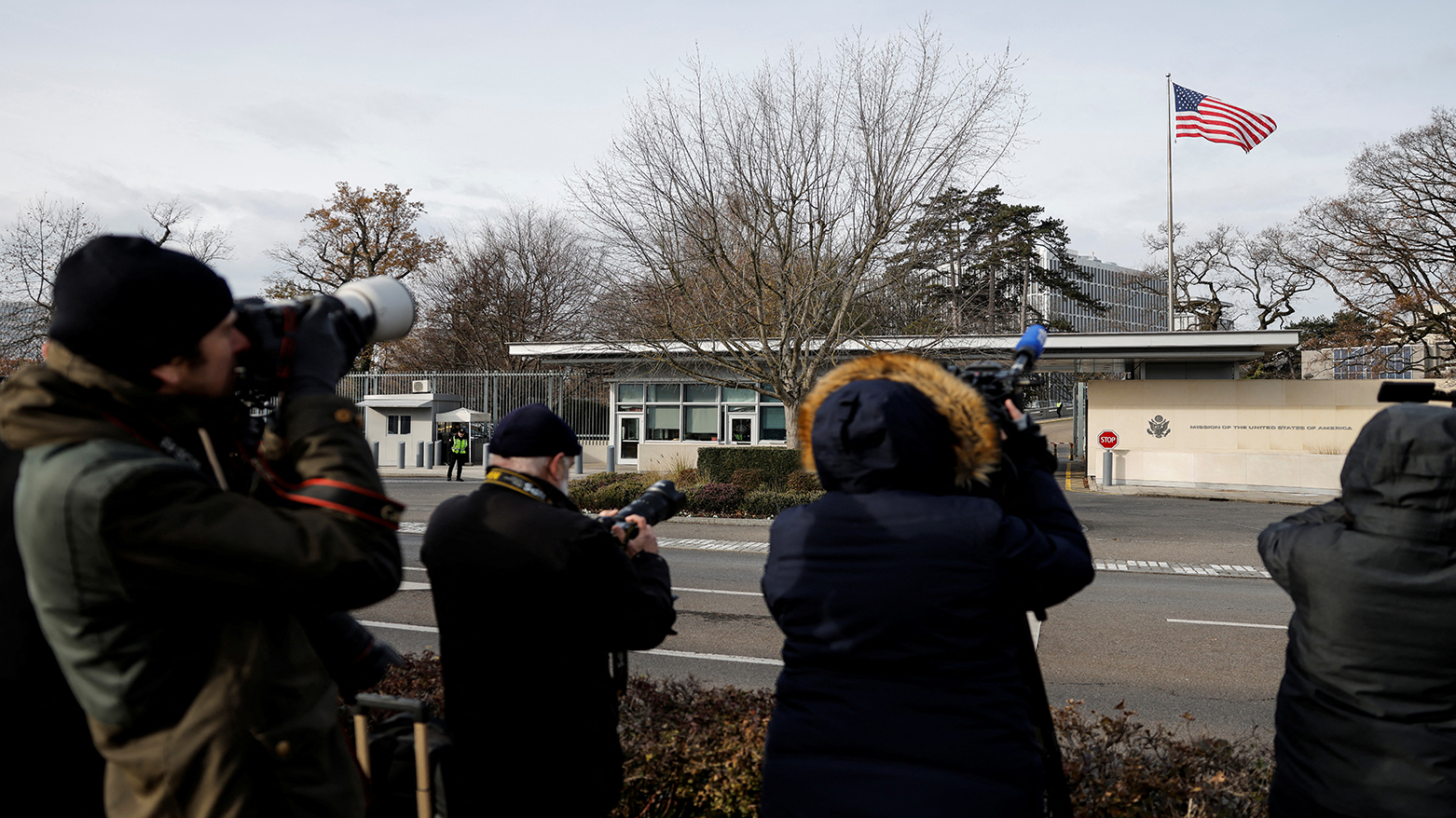Ukraine, U.S., and European Officials Meet in Geneva as Trump’s Controversial Peace Plan Faces Intense Pushback
Kyiv and key European allies warn that the U.S. proposal—requiring Ukraine to cede territory, shrink its military, and abandon NATO aspirations—contains unacceptable concessions to Moscow as Russia continues battlefield advances.

ERBIL (Kurdistan24) — Senior Ukrainian, U.S., and European officials convened in Geneva on Sunday for critical talks over a contentious American plan to end the nearly four-year war in Ukraine, as international criticism mounted over provisions widely seen as favoring Moscow. The meeting followed intense diplomatic friction within Western ranks and new Russian advances on the battlefield, raising the stakes around a proposal Washington insists is official U.S. policy despite internal political turmoil.
Ukraine’s top negotiator, Andriy Yermak, confirmed he held his first round of discussions with national security advisers from France, Germany, and the United Kingdom ahead of a formal session with the U.S. delegation led by Secretary of State Marco Rubio.
The plan—drafted by Washington but influenced by Russian and Ukrainian inputs—has stirred outrage among Kyiv’s allies for echoing several of the Kremlin’s longstanding demands.
Norwegian Prime Minister Jonas Gahr Store, speaking to AFP on the sidelines of the G20 summit in South Africa, said the proposal contains “major flaws,” stressing that any settlement must include Ukraine and Europe at the table.
“Changing borders by force is unacceptable,” Store said, warning that the plan must align with international law and the UN Charter.
A Proposal Under Fire
The 28-point draft would require Ukraine to cede parts of its territory, reduce its military capabilities, and pledge never to join NATO—long-term objectives of Russian President Vladimir Putin. In exchange, the document suggests Western security guarantees to prevent future Russian aggression.
Kyiv, backed by European and Canadian officials gathering in Geneva, is pushing for significant revisions. President Volodymyr Zelensky warned Friday that Ukraine faces one of the most difficult moments in its history, vowing to present “alternatives” that protect Ukraine’s sovereignty and security.
“There is no scenario in which Ukraine’s dignity and liberty are negotiable,” France’s Deputy Armed Forces Minister Alice Rufo said.
Yet President Donald Trump has pressured Kyiv to approve the plan by November 27, saying it is not his final offer but insisting the fighting must stop “one way or the other.” His administration has struggled to dispel confusion after U.S. senators publicly accused Secretary Rubio of describing the plan as a “Russian wish list.”
Several senators, including Republican Mike Rounds and Democrat Jeanne Shaheen, said Rubio privately told them the document originated from Russian channels before being forwarded to U.S. envoy Steve Witkoff—an assertion Washington vehemently denies.
Rubio later stated the plan “was authored by the U.S.,” but acknowledged it incorporates “input from the Russian side.”
The internal dispute has raised questions about the coherence of U.S. policy at a pivotal moment for Ukraine’s war effort.
Russian Advances Intensify Pressure
As diplomats gathered in Switzerland, Russia announced the capture of three more villages—Petrivske in Donetsk, and Tikhe and Otradne in Dnipropetrovsk—extending a series of incremental gains along the eastern front.
Kyiv has been struggling to hold defensive lines amid manpower shortages, ammunition constraints, and relentless Russian pressure.
Putin welcomed the U.S. proposal, calling it a possible “foundation” for a final settlement but warning that Russia would seize more territory if Ukraine abandons negotiations. Western leaders remain deeply wary of any deal that appears to reward Moscow’s invasion.
At the G20 summit, European leaders issued a joint statement with Canada and Japan, stressing that “borders must not be changed by force” and expressing concerns that Ukraine’s military must not be weakened to the point of future vulnerability.
A Divided West Navigates High-Stakes Diplomacy
The Geneva talks include senior representatives from the EU, France, Germany, Italy, Canada, and the UK, with London’s national security adviser Jonathan Powell among the key participants.
Italian and French officials emphasized the need for “security guarantees” for Kyiv under any agreement, while Macron announced that the 30-country coalition supporting Ukraine will convene a video summit on Tuesday to assess next steps.
Despite ongoing divisions within the West over the U.S. plan, all parties reiterate the same principle: any settlement must be durable, lawful, and protect Ukraine’s long-term security.
For Kyiv, the choice is existential. “Ukraine may face a very difficult choice: either the loss of dignity or the risk of losing a key partner,” Zelensky warned.
As the Geneva consultations continue, international pressure—and the pace of events on the battlefield—may soon force Kyiv and its allies to decide just how much they are willing to compromise in pursuit of a war-ending deal that remains deeply controversial across Europe and within the United States itself.